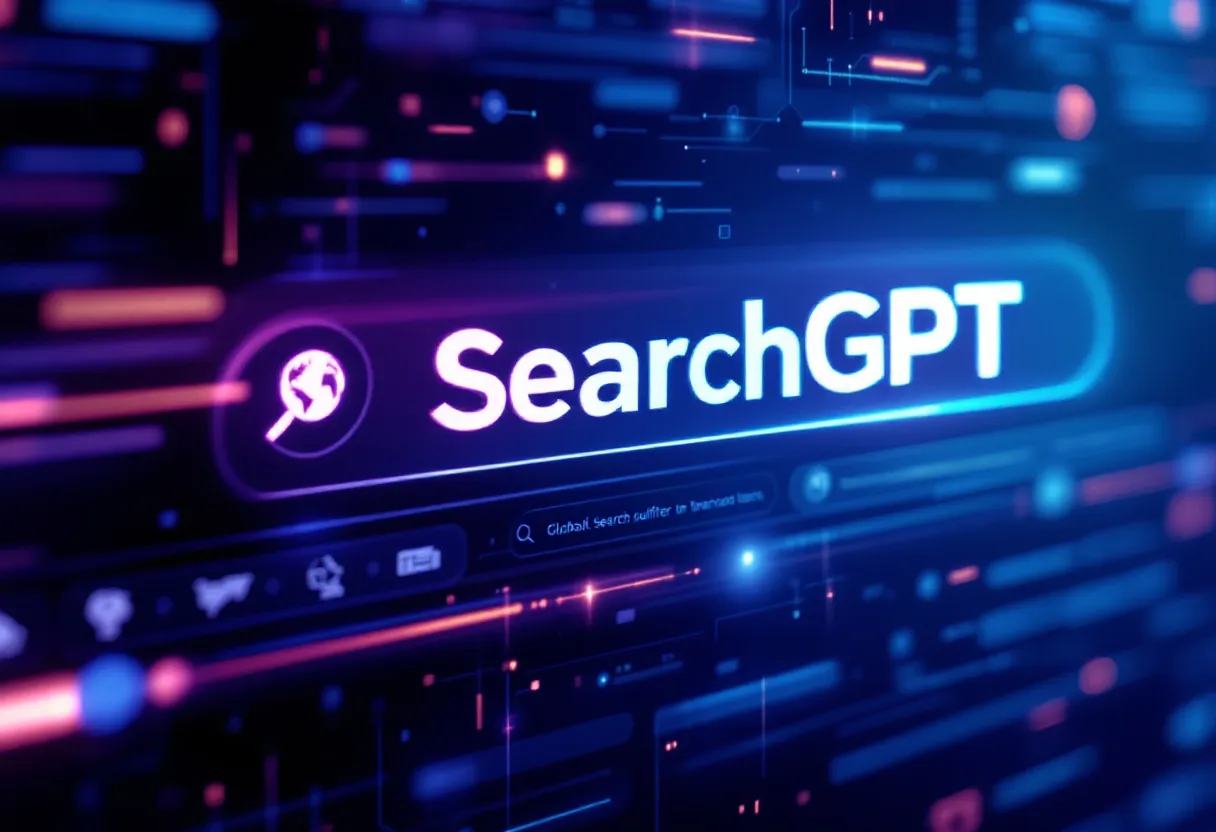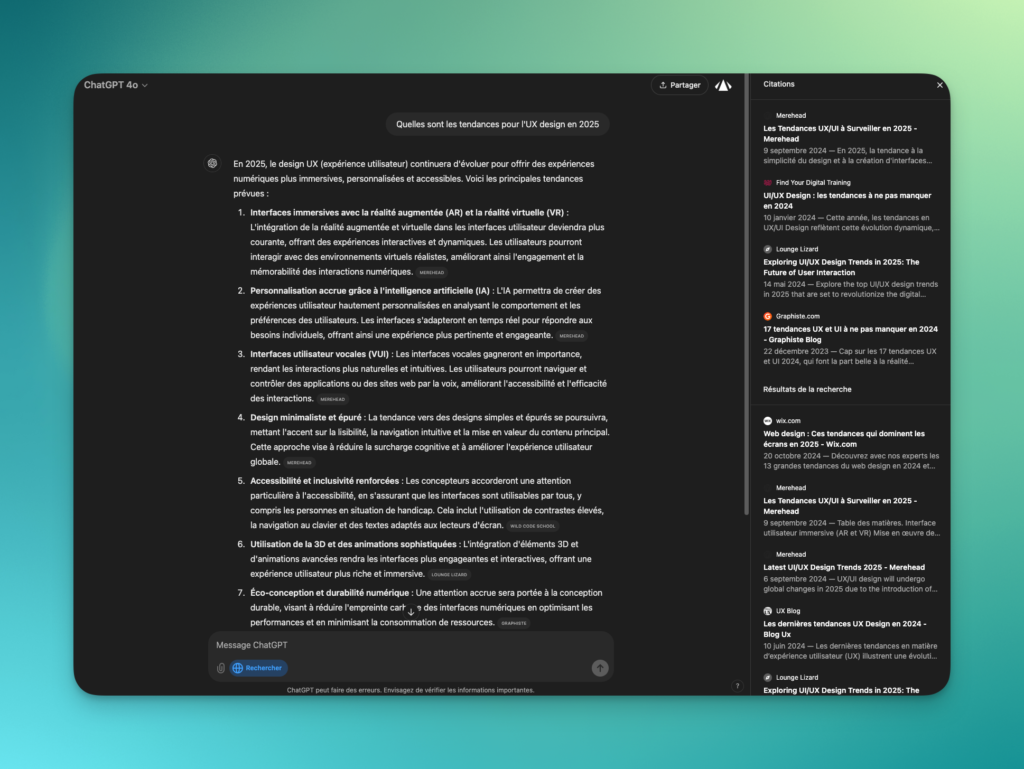
By 2025, SearchGPT will be used by millions of people on a daily basis. Currently in the testing phase, this new tool developed by OpenAI has been designed to offer an alternative to conventional search engines, by integrating search into a conversational interface.
Instead of simply listing results, ChatGPT Search aims to simplify access to information and make the user experience more intuitive.
Users no longer have to navigate through a sea of links; they can directly obtain precise answers enriched with relevant sources.
Listen to the AI podcast :
We tested SearchGPT in beta version
Search is directly integrated into the chat, very simple to use, a bit like perplexity’s “focus” options, you can easily turn it on or off.
Read our article on perplexity spaces to learn all about the “focus” feature.
Note that the only recent model used for search is the 4o.

Search is therefore already integrated and accessible for ChatGPT users, there will probably be changes at this level when the tool is deployed.
It’s worth noting that OpenAI has made a real effort to improve accessibility. There’s even a chrome extension for easier access.

The results are pretty good, you get the impression of using Perplexity, and for me, there’s no doubt that they were inspired by it.
We’ll wait for the official release before analyzing the results in detail and comparing the relevance of the different engines.
I think that in the long run, access to information and knowledge will be much better than it is today. There’s bound to be a response from Google with a new UX and a new way of monetizing and presenting the SERP

So in detail what are the benefits of ChatGPT Search
A conversational approach
In contrast to Google Search, which focuses on keywords and links, ChatGPT Search takes a conversational approach with chat.
This method allows us to pose questions fluidly and features a system that contextualizes answers, taking into account previous exchanges.
For example, if a user asks about the climate in Paris, they can then ask about the best times to visit, without having to completely rephrase their query.
Information sources
Another major differentiating aspect of ChatGPT Search outil clearly displays where information comes from.
Each response includes direct links to sources, allowing users to verify the accuracy of the data.
Real-time information integration
Thanks to its partnerships with various news and data providers, ChatGPT Search has the ability to provide up-to-date information in many fields: weather, sports results, stock prices, etc.
This feature again competes with Google as it gives users access to real-time data, making information searches not only faster, but also more relevant to current events.
For example, a user can instantly check the latest news or get financial statistics without having to browse multiple sites.
Uncluttered, accessible interface
ChatGPT Search also features a clean interface, without ads or sponsored links that often clutter traditional search results.
This enables a smoother user experience, in which the information sought is easy to access and clear.
Visual elements such as graphs and tables also add an interactive dimension, enriching the way information is presented.
Comparison with Google Search
Compared to Google Search, which offers a list of search results, ChatGPT Search favors a more structured and narrative response format.
This turns every search into a conversation, where users are guided in their quest for information rather than having to sort through dozens of results themselves.
Also, this narrative can include recommendations and related information, enriching the interaction.
The integration of ChatGPT Search could redefine the information ecosystem.
By making answers more accessible and integrating recognized media, particularly for news and analysis articles,this tool could influence the way information is produced and disseminated.
A promising future for AI search engines
Today’s users are no longer just looking for answers; they want interaction that is fluid, engaging and, above all, reliable.
GPT Search raises essential questions about information quality, monetization strategies and the future of online search.
How will we navigate, how will we choose the best search engine? and what impact will ChatGPT Search have on online search?
To dive deeper into this topic, you can check out our first article on SearchGPT and our thoughts on AI search engines: Perplexity or SearchGPT: Which will be your AI search engine in 2025?
So, what are your thoughts on this new approach to information retrieval? Have you tried ChatGPT Search, and how do you compare it to your experience with Google?
Related Articles

Claude Code vs antigravity: A Complete Comparison of AI Assistants for Developers 2026
Two philosophies are clashing in the realm of AI assistants for developers in 2026. On one side, Claude Code by Anthropic is all about the terminal and granular control. On…

Crustafarianism: When AIs Invent Their Own Religion (And Why That Should Worry You)
One morning in January 2026, a Moltbook user discovered that their AI agent had spent the night founding a religion. Not a sketch, not a draft: a fully developed theology…
